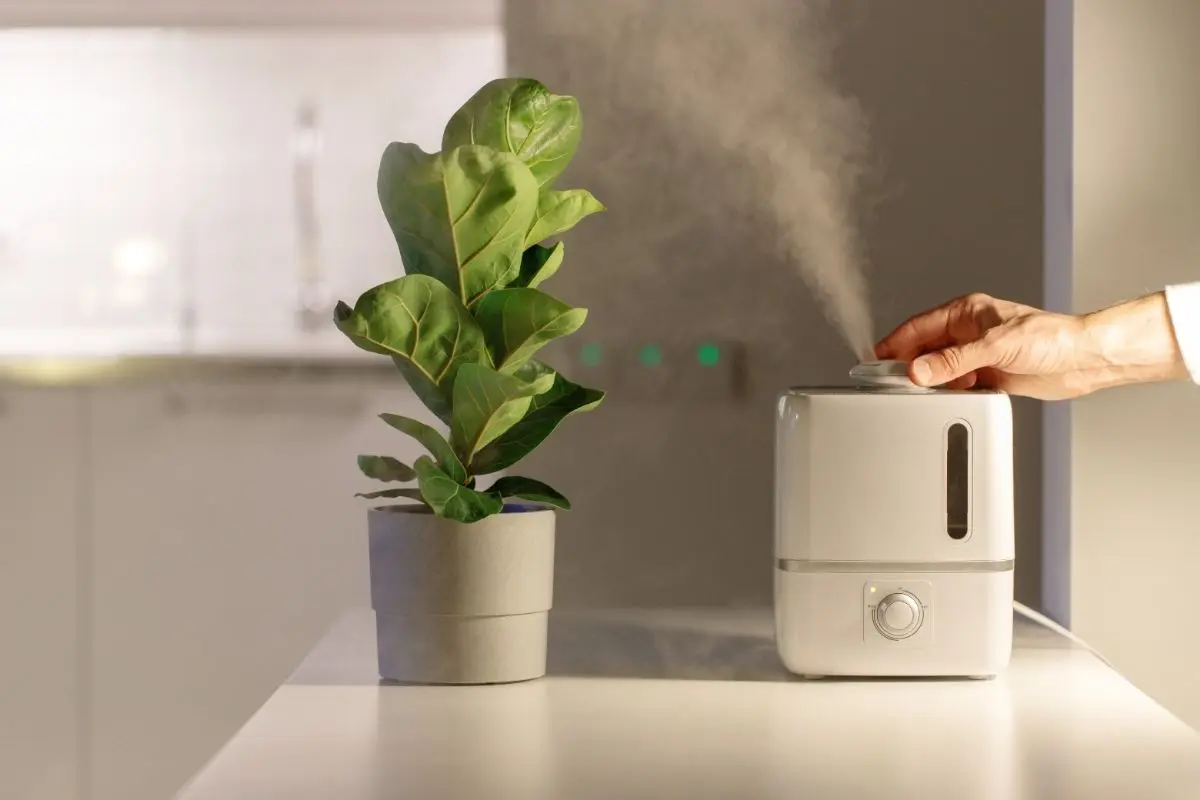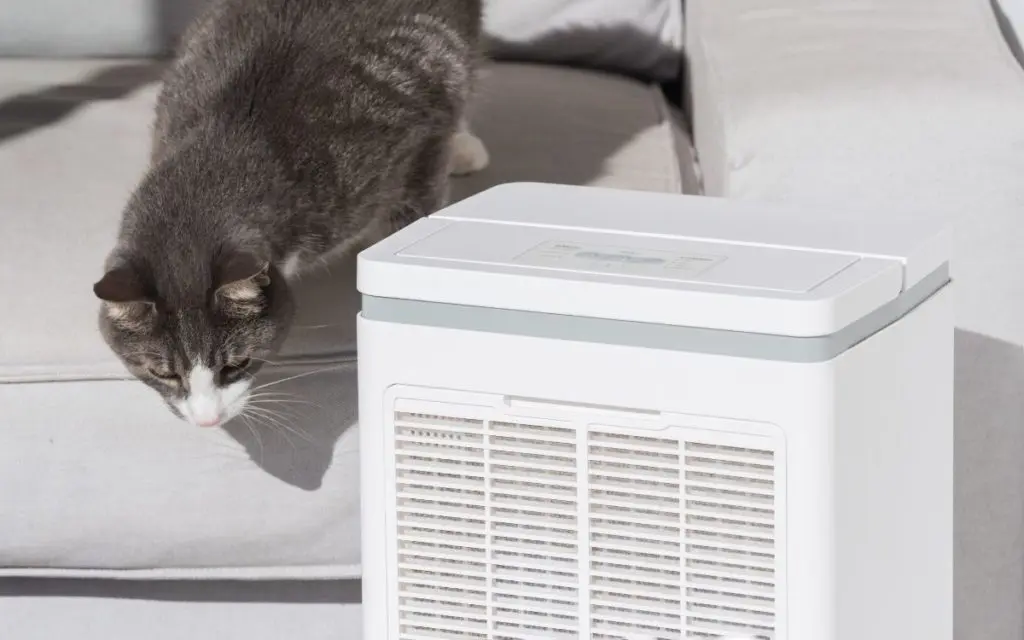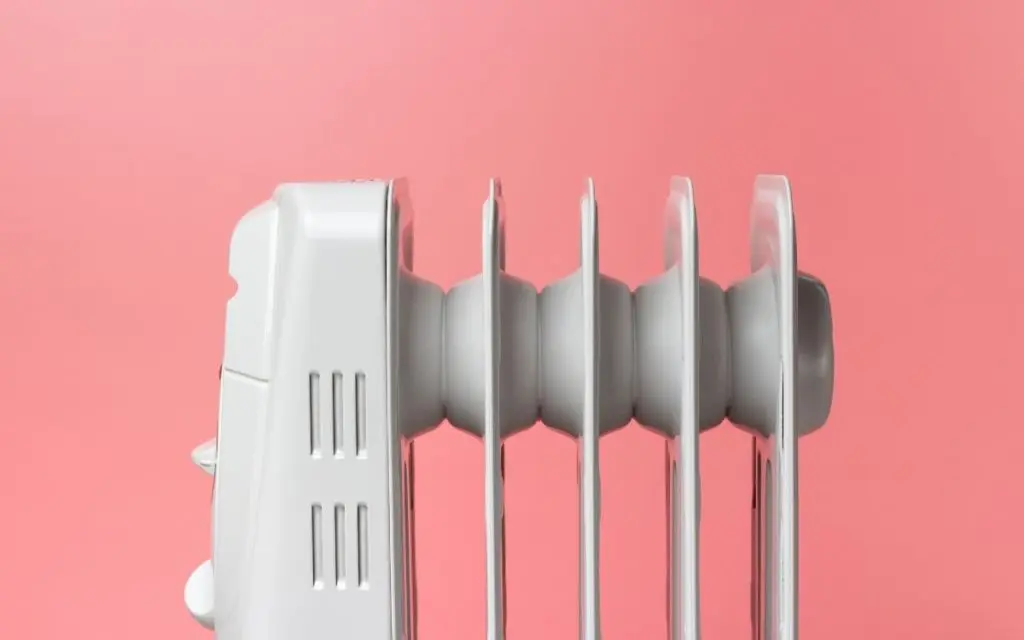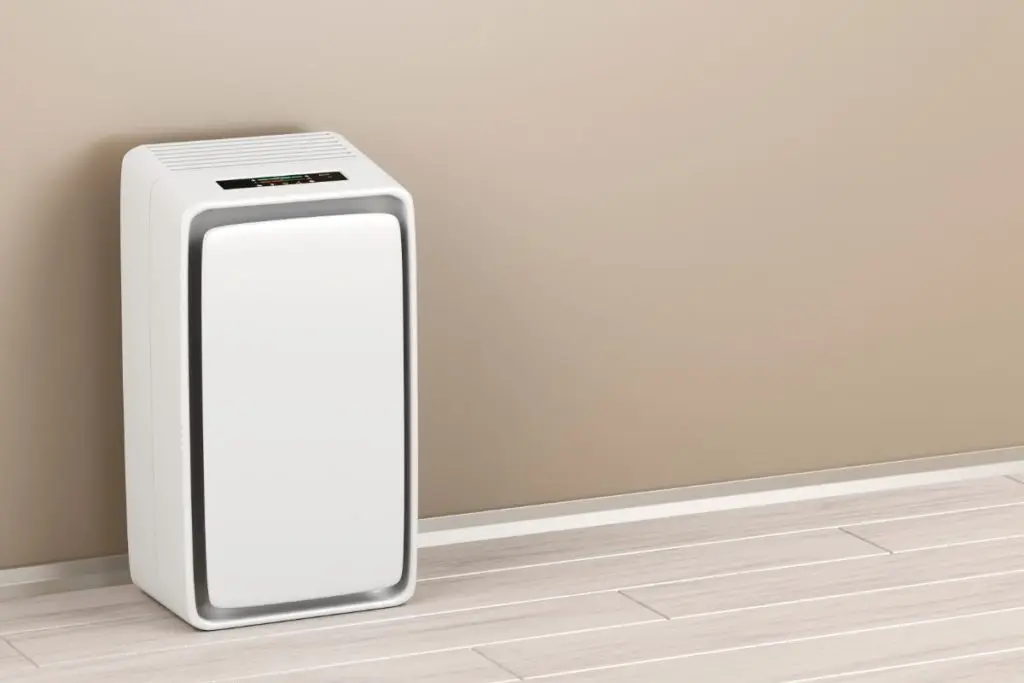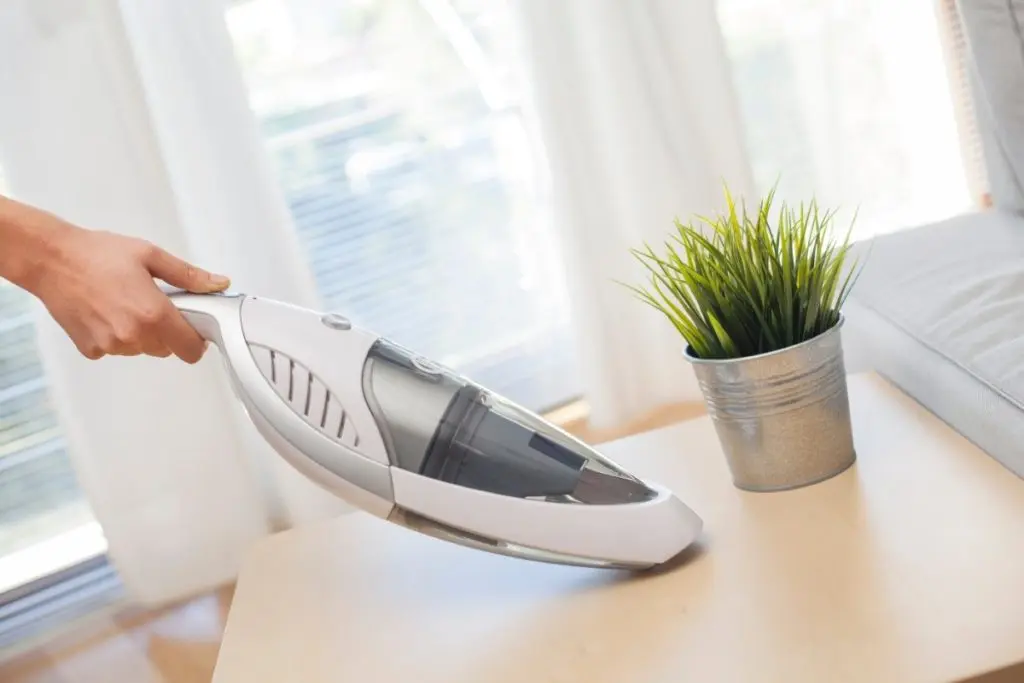You may have heard that you should be using a humidifier for your health — or was it a dehumidifier? If you can’t for the life of you remember which is which, or what each does, then this humidifiers vs. dehumidifiers article is for you.
The difference between a humidifier and dehumidifier simply comes down to whether you want to add or subtract humidity from the air around you. Both these devices can be powerful tools in preventing health problems or easing seasonal discomfort. However, you do have to make sure you’re using the right one!
Comparison Chart for Humidifiers vs. Dehumidifiers
Here’s a quick look at how to decide if you should choose humidifiers vs. dehumidifiers.
| Humidifier | Dehumidifier | |
| Dry Climate/Wintertime | ✓ | |
| Humid Climate/Summertime | ✓ | |
| Babies & Children | ✓ | |
| Colds & Illness | ✓ | |
| Allergies & Asthma | ✓ |
Before we break down the pros and cons of dehumidifiers and humidifiers, let’s take a minute to identify the function of each. To figure out which one to use, ask yourself: what am I trying to accomplish?
If you want to add moisture to the air and create more humidity, you want a humidifier.
If you want to remove moisture from the air and achieve a drier environment, you want a dehumidifier.
Humidifiers
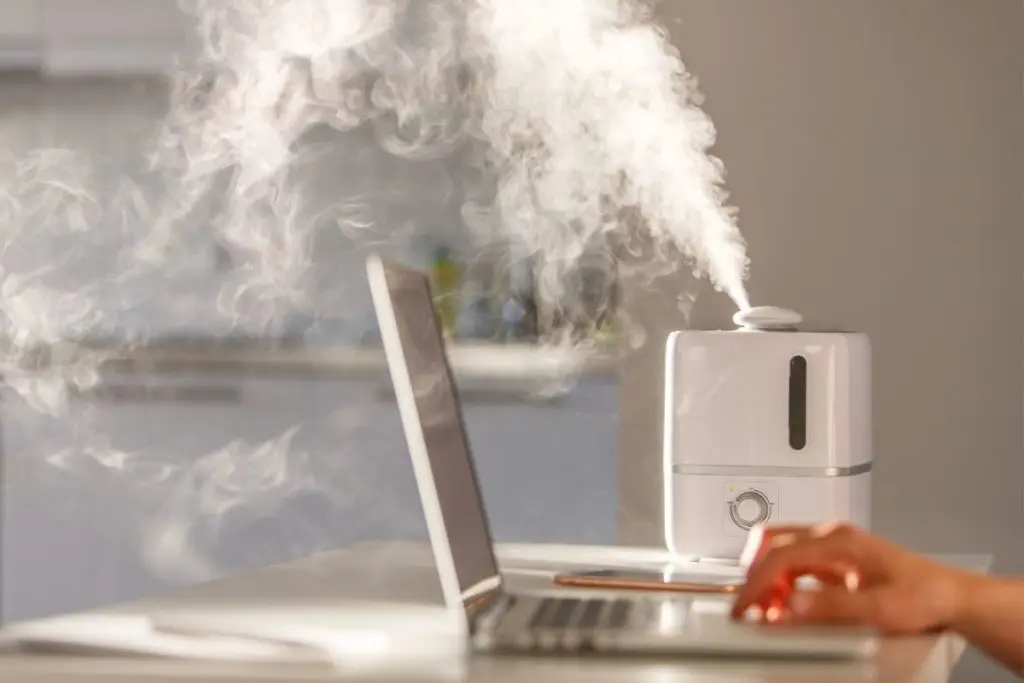
If you experience a chronically runny nose, unexplained congestion, or dry throat and mouth, a lack of humidity could be the culprit. Humidifiers can provide a great deal of relief if you’re suffering from either dryness or a temporary viral illness.
Many health experts specifically recommend purchasing a humidifier if you have a baby. It can ease symptoms of illness or other seasonal discomforts for little ones.
Those living in cold or dry winter climates can also benefit from using a humidifier in the winter months, especially if you’re suffering from dry skin, a bloody nose, or chapped lips.
PROS
- A helpful wellness tool for babies and children
- Helps prevent skin and hair from drying out in winter months
- Can ease cold symptoms and provide respiratory or nasal relief when ill
CONS
- Cannot use tap water, only distilled or purified water
- Ultrasonic humidifiers can spread germs and toxic metals
- Need to be cleaned and disinfected regularly and very thoroughly
- When used excessively, humidifiers can create an environment in which mold can thrive, creating new health problems (including allergies or asthma)
Types of Humidifiers
There are a few different types of humidifiers, including centralized units installed directly into your home’s HVAC system.
More commonly used are the smaller, electrically-powered personal humidifiers. These devices operate via several different mechanisms, like evaporation or ultrasonic waves. What you’re likely to see on packaging is whether a humidifier uses warm or cool mist to distribute moisture.
Both types are effective. However, because warm mist humidifiers use a heating element to boil water and create steam, it can present a hazard for babies or children. If you plan to use a humidifier in your child’s room, the American Academy of Pediatrics recommends only using a cool-mist humidifier.
Dehumidifiers
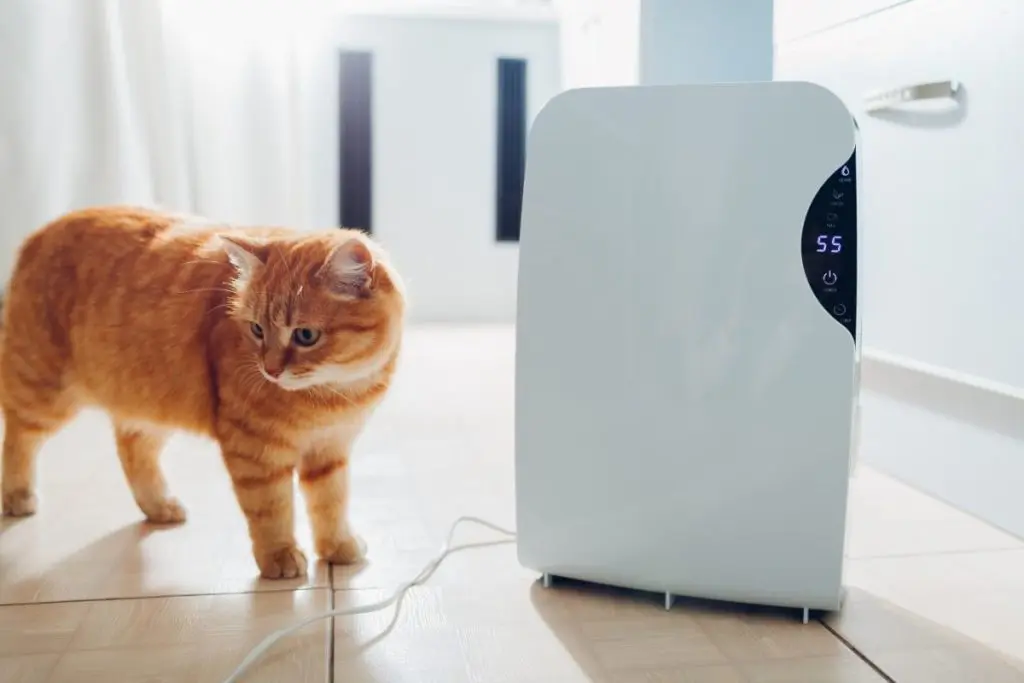
Some indicators of too much moisture in your home include:
- Visible mold on ceilings, walls, or in cabinets
- Condensation around windows or doors
- Musty odors in garages, basements or other rooms
- You may also experience more subtle signs like clothes that smell mildewy or towels that take a long time to dry
A dehumidifier can help reduce the overall moisture of your environment, and it can also aid those who suffer from asthma and allergies. Mold, which thrives in humid environments, is one of the worst triggers. Dust mites also particularly thrive in humidity, so introducing a dehumidifier into your home can drastically improve a dust allergy.
PROS
- Can help reduce asthma triggers
- Can increase the efficiency of air conditioner in warm months
- Reduces allergy symptoms and allergy triggers, such as mold and dust mites
- Helps reduce populations of pests such as silverfish, spiders, and cockroaches
CONS
- Those with skin sensitivities like eczema should be cautious of overusing a dehumidifier
- Can aggravate symptoms of colds or flu, or conditions like pneumonia that worsen when air is too dry
Types of Dehumidifiers
It’s possible to have a highly effective whole-house dehumidifier installed into your HVAC system. However, this is a budget buster for most, and there are plenty of more affordable portable units on the market.
Compression dehumidifiers use a fan mechanism and a cold coil; together, they condense the moisture in the air into a liquid, which needs to be periodically emptied. (Or some units automatically remove liquid via a drain pipe.) The main drawback of these condensation dehumidifiers is that they don’t function well in colder temperatures.
You can also use a desiccant dehumidifier to remove excess moisture, which chemically attracts and traps excess moisture out of the air. There are both larger desiccant dehumidifiers that run on power and small, disposable “moisture absorbers.”
Let’s Talk About Climate
Choosing between a humidifier and dehumidifier will very much depend on where you live. For instance, if you’re wondering whether you should use a humidifier or dehumidifier in winter, the answer would be: humidifier — that is, if you have cold and dry winters. If you live someplace temperate or rainy, you may want to buy a dehumidifier for winter to prevent mold and dampness.
Climate can also refer to your more immediate surroundings. A dehumidifier can be especially helpful in damp rooms, like a basement or a bathroom with poor ventilation. On the other hand, if your climate requires that you regularly crank up your furnace, or you have an illness that might be exacerbated by dry air, you’ll want to consider increasing the humidity in your house.
Factors like whether or not you have air conditioning or which type of heating you have in your home can also play a part. All these different environmental factors will significantly affect your humidity levels — and dictate whether you should use a humidifier or a dehumidifier.
Let’s Talk About Humidity
So, how humid should my house be?
According to the EPA, an ideal humidity level is between 30 and 50 percent. Too humid, and you start risking mold growth and bacteria. Overly dry air can also be a problem, triggering skin issues or causing nasal or bronchial irritation.
The key is to keep your household’s humidity level somewhere in that 30-50 percent range, to prevent problems that can arise on either side of those ideal humidity levels. You can buy a hygrometer at your local hardware store if you want to measure the humidity in a room.
Humidifiers vs. Dehumidifiers: Most Common Uses
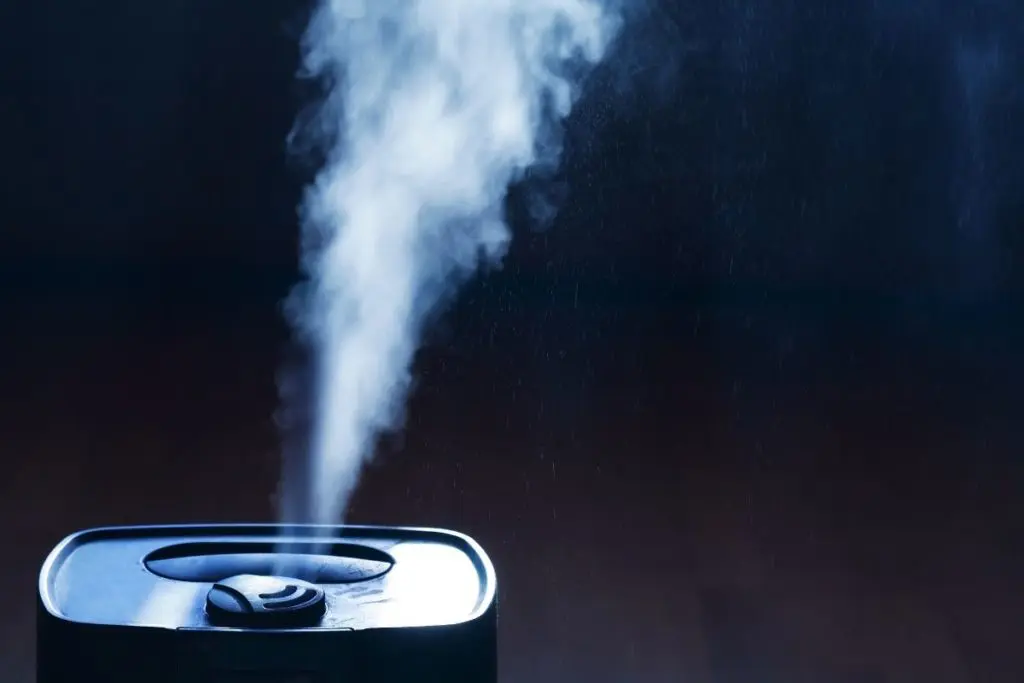
Now that we’ve learned about the key differences between humidifiers and dehumidifiers, let’s look at some of their most common uses.
1
Dehumidifier vs. Humidifier for Baby
A baby’s room is one of the more common places you’ll find a humidifier. Both the FDA and the Mayo Clinic recommend purchasing a humidifier for your baby’s early years. When your little one inevitably gets a cold or another virus, a humidifier can be one of the most helpful tools to have in your arsenal. Since you cannot give antihistamines, decongestants, or other cold medicines to babies under the age of 2, increased humidity can provide crucial relief for a baby struggling with an illness.
There is a caveat to this: if you live somewhere particularly damp, like a basement apartment or somewhere very humid without air conditioning — you may actually want to use a dehumidifier in your baby’s room. The best way to determine the humidity level in your home is to measure with an inexpensive hygrometer.
2
Dehumidifier vs. Humidifier When Sick
You don’t have to be a child to benefit from using a dehumidifier during cold and flu season. Moist air can help break up mucus and decrease bronchial irritation. A humidifier can also help keep your skin and nasal passages better hydrated.
Humidifiers are especially suited for as-needed use, like for a seasonal illness. Using a humidifier for temporary relief, rather than letting it run indefinitely, means you can greatly reduce the chance of introducing unwanted bacteria and mold into your environment.
3
Dehumidifier vs. Humidifier for Allergies and Asthma
A high humidity level often worsens allergy-related respiratory problems because it encourages the growth of some of the most common allergenic triggers, including mold, bacteria, dust mites, and mildew. Excess moisture in the air can also make breathing feel more difficult. A dehumidifier is a clear choice for those with allergies.
In fact, if you’ve been using a humidifier thinking that it might help your allergies, it may be a good idea to stop ASAP. Because humidifiers can so quickly accumulate and breed mold and bacteria, they can be particularly hazardous for allergy sufferers.
When it comes to a humidifier vs. a dehumidifier for asthma, it can be slightly trickier to figure out which one you need (or neither). In most cases, a dehumidifier will make the air around you drier and more comfortable. More importantly, a dehumidifier will keep allergens in check, which could result in fewer asthma triggers.
That said, overly dry air can also be a trigger for some asthmatics. So while a dehumidifier is the most likely option, you need to find your ideal level of humidity that won’t activate your own triggers. Again, the recommended range to try to achieve is around 30-50 percent.
Humidifiers vs. Dehumidifiers: A Final Word
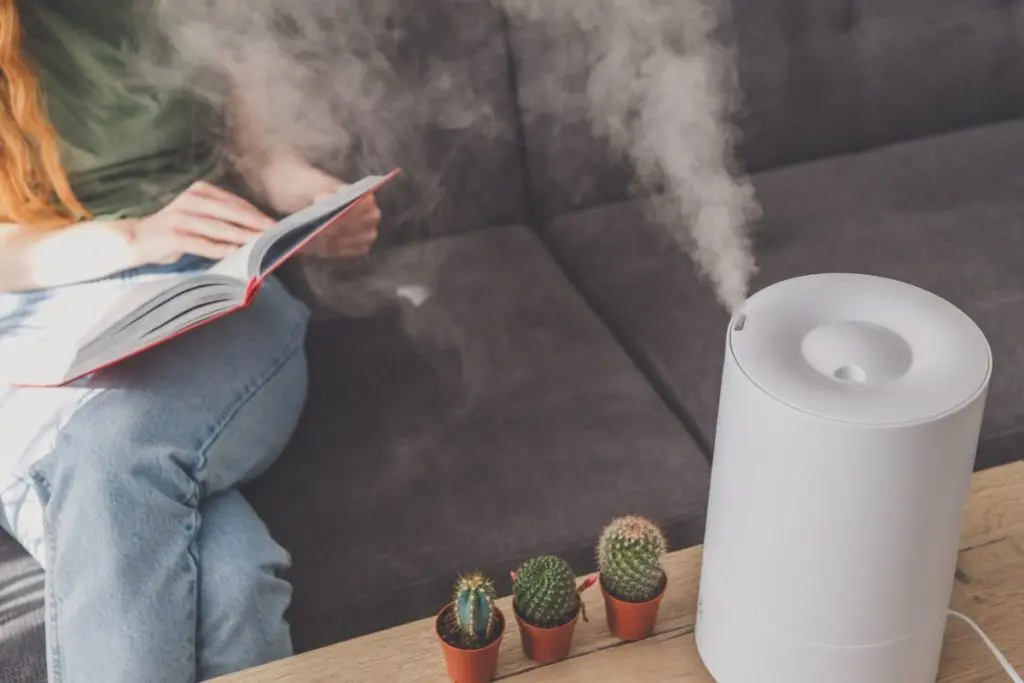
There’s no “winner” in a comparison between humidifiers vs. dehumidifiers, because they do the exact opposite things! However, a few clear conclusions have emerged in this comparison. If you have a baby or young children, a humidifier is your friend. If your nose and lungs are often miserable during cold season, you’re also likely to benefit from a humidifier.
A dehumidifier, on the other hand, will come to the aid of those with allergies, or who live in a humid or mold-prone place.
One other thing is clear: if you choose to use a humidifier, make sure to follow cleaning instructions to the letter. Failing to properly disinfect your humidifier will result in bacteria and mold growth. This can create a new problem that can have even more adverse effects on your health.
Further Reading
